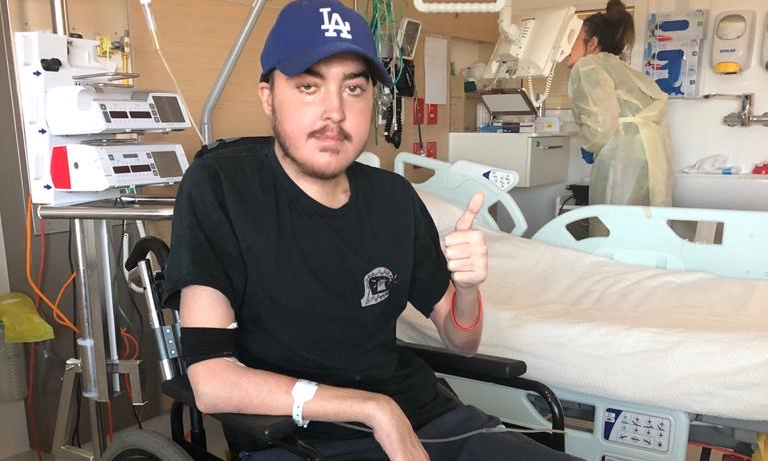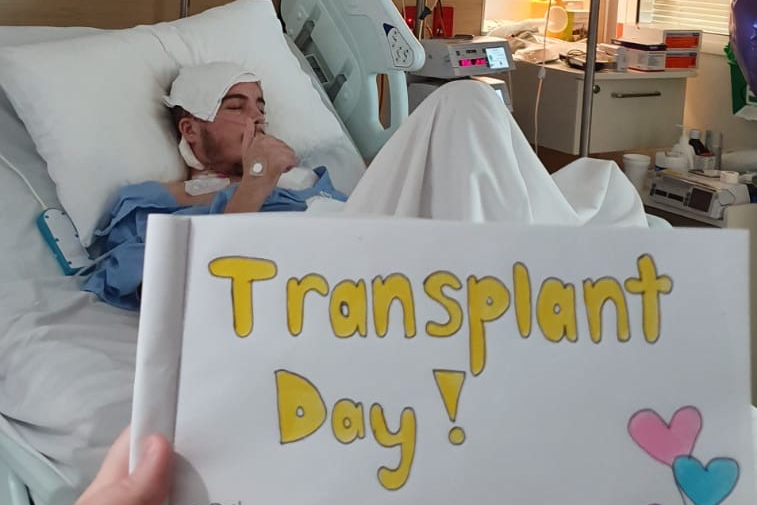You stepped up for Jack and his family in their darkest hour
Stem cells are primitive cells likened to ‘baby’ cells, yet to decide what they want to be when they grow up. They turn into all the different blood cells, including the cells of our immune system.
But people with blood cancer or related blood disorders often need their stem cells replaced because of their disease or toxic treatments like chemotherapy.
Most stem cells donated to Australians actually come from overseas. So, what happens when unprecedented travel restrictions during a pandemic strangle the vital supply of stem cells?
Jack Mcilvar was 22 years old when he was diagnosed with a dangerous blood disorder called aplastic anaemia. He needed a stem cell transplant this year to save his life.
His father and carer, James, recalls how his son had battled aplastic anaemia for many months, spending weeks in intensive care and coming close to death. But there was light at the end of the tunnel: a stem cell donor had been found in Europe and Jack was finally well enough for a transplant.
His new live cells were prepared for a trip to Australia, to be accompanied by a necessary human courier. Meanwhile, Jack’s doctors in Adelaide began the normal process of destroying what was left of his immune system ahead of the transplant.
But then COVID-19 began to spread. Borders closed, couriers could no longer travel, transplants were deferred. Jack’s life-giving cells remained thousands of kilometres away.
“We just couldn’t believe our luck,” James recalled.
“Our son had no immune system left and was now one of the most vulnerable people in the world.
We’d got through so much and were at last ready for a transplant, but now there was a global pandemic.
“Doctors had to stop treatment because his stem cells were no longer guaranteed to arrive.
“Our family was in complete turmoil. Who could we reach out to? It was a feeling of utter helplessness.”
Then a chance encounter in hospital. One of our team, visiting other families with blood cancer, overheard James in the patient lounge and offered to help.
Jack’s stem cells did make it through.
“We’re still not sure how it happened but Jack’s transplant arrived, we think on one of the last flights in carrying cells,” James explained. “We were lucky. It was such an incredible relief to us.”
After weeks of difficult recovery following his transplant, and against all the odds, we’re thrilled to report Jack is now on the verge of going home. Thank you so much for being there for families like Jack’s during the coronavirus pandemic.
There are lots of challenges ahead but with Jack and thousands of others like him catalysing our efforts, we’re ready to take them on together.
Last updated on February 23rd, 2022
Developed by the Leukaemia Foundation in consultation with people living with a blood cancer, Leukaemia Foundation support staff, haematology nursing staff and/or Australian clinical haematologists. This content is provided for information purposes only and we urge you to always seek advice from a registered health care professional for diagnosis, treatment and answers to your medical questions, including the suitability of a particular therapy, service, product or treatment in your circumstances. The Leukaemia Foundation shall not bear any liability for any person relying on the materials contained on this website.
